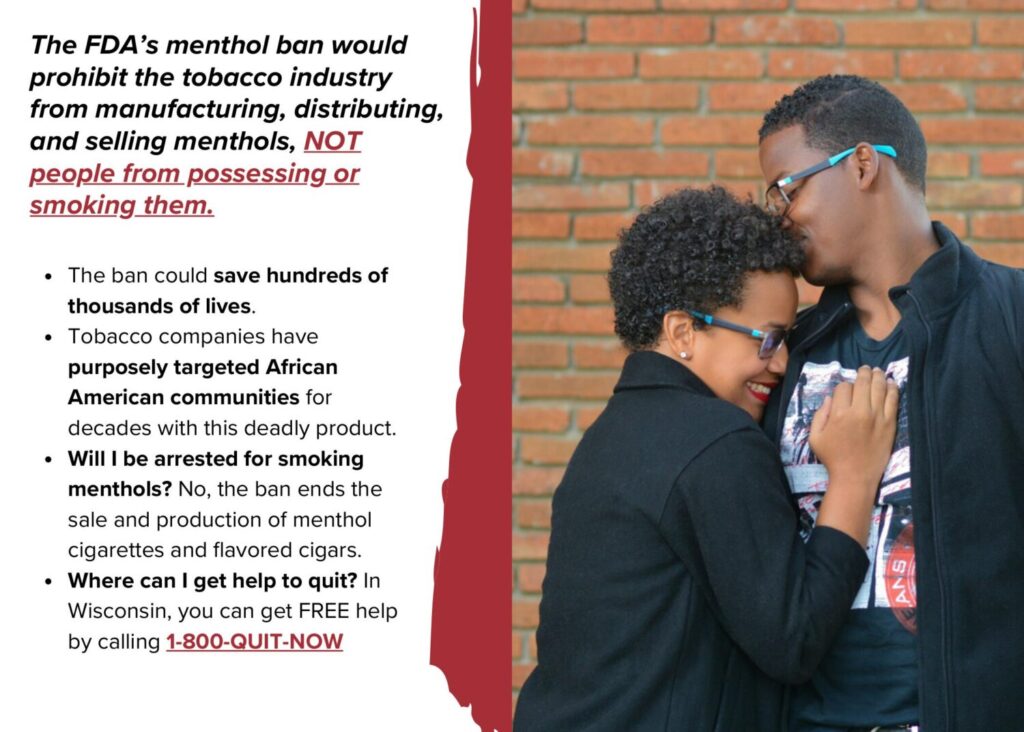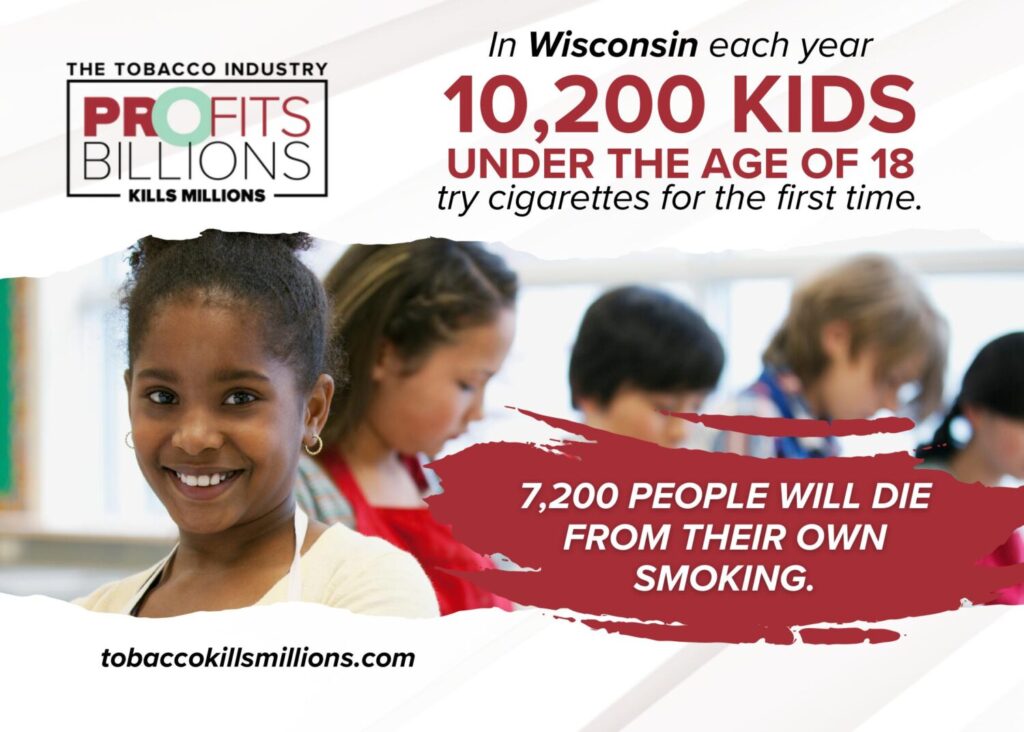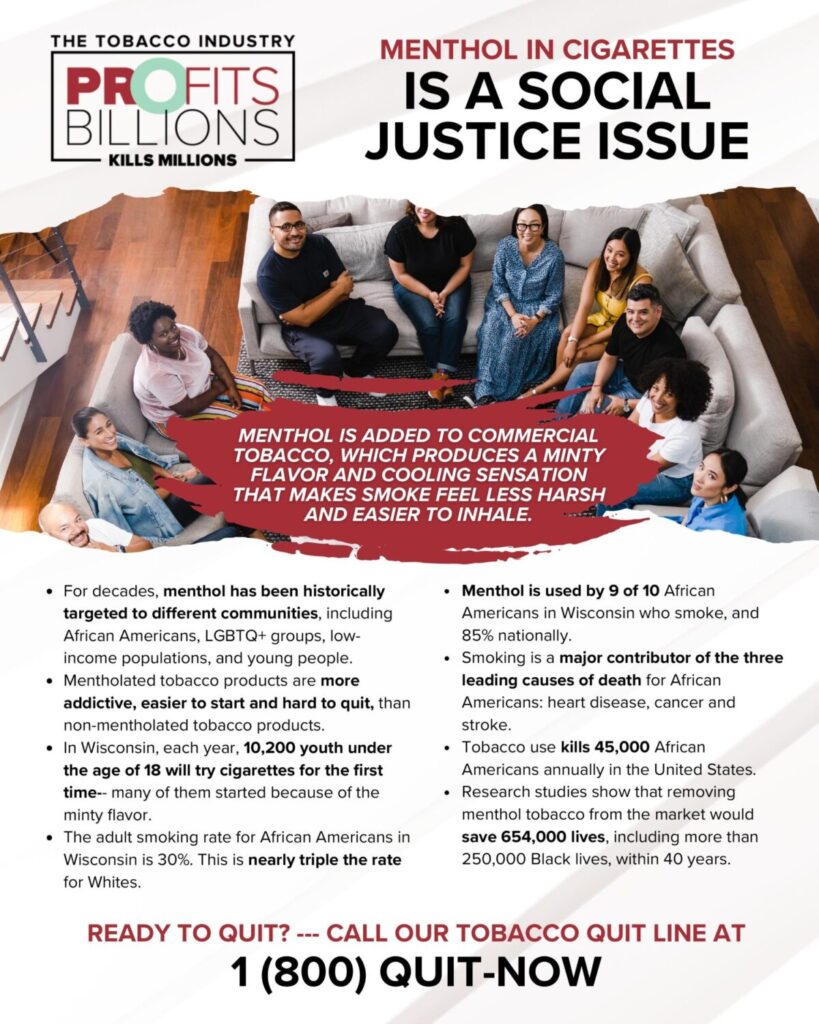
 Special promotional content provided by the Wisconsin African American Tobacco Prevention Network.
Special promotional content provided by the Wisconsin African American Tobacco Prevention Network.
A proposed ban on menthol in cigarettes will not result in police coming after smokers.
That’s the key message public health officials and advocates want to get across, despite what people might have heard from tobacco companies.
“They’re adding scare tactics to make people believe that this ban has something to do with law enforcement, or that you will be harassed,” says Dr. Steven Tipton, pastor of Bethel Church of God in Christ and an adviser for the Milwaukee church’s FACT group, a youth tobacco prevention initiative.
That’s just not true, says Myranda Phelps-McGuire, a prevention specialist at Public Health Madison and Dane County.
“This ban would not target people for smoking or carrying menthol cigarettes,” she says. “The new rule would apply only to manufacturers and retailers, not consumers. The ban would prohibit the manufacture and sale of menthol cigarettes, but it would not make it illegal for somebody to possess or to smoke them.”

What is the proposed ban?
Since the Food and Drug Administration has had authority over tobacco, all flavoring in tobacco products has been banned.—all flavoring, that is, except for menthol.
The proposed menthol ban is not a law passed by Congress; rather, it is a regulation proposed by the FDA, which then must be approved by the White House Office of Management and Budget. The ban has been in the works for more than 10 years and seemed poised to finally be put into place late in 2023, only to be delayed again.
Advocates stress that the rule would apply only to tobacco manufacturers and retailers, not consumers.

Why ban menthol?
Advocates say the best way to reduce tobacco consumption is to stop people from starting in the first place.That’s the primary purpose of the ban.
“It will stop the easy in and the hard out,” Tipton says. “The menthol is more of an easy way (to start), a smooth way.”
Tipton is referring to menthol’s mint flavoring that makes cigarettes easier to start and harder to quit because of its soothing and cooling effect. In Wisconsin, 88% of Black people who smoke use menthols.
Advocates hope the ban will especially discourage young people from starting.
“We know that most young people would not try a non-flavored tobacco product,” Phelps-McGuire says. “All other flavored cigarettes have already been banned with the exception of menthol. So menthol would kind of close that flavored cigarette option for young people. We hope we would see first-use rates plummet.”
According to data from the 2022 Wisconsin Youth Tobacco Survey, 92% of teens who use tobacco would not use unflavored tobacco products.
To be clear, menthol is just a flavoring, making the tobacco and all the chemicals in it – including the addicting drug nicotine – easier to ingest. Menthol cigarettes are not “healthier” than other kinds.
“Studies actually point the other way, that they actually may be more hazardous to your health,” Phelps-McGuire says. “And they definitely have been found to be easier to get hooked on and harder to quit.”
Because menthol cigarettes are especially prevalent within Black communities, a menthol ban will save thousands of Black lives, Tipton says.
“Research found that the ban will save more than 650,000 lives, and that’s including 225,000 Black lives, within 40 years,” he says.
Reducing tobacco use is especially important in a community that’s already disproportionately affected by asthma, COPD, and other health issues.

What can we do?
The decision to approve or delay the ban rests solely with the Biden administration at this point.
Tipton says advocates are collecting stories and testimonies to help administration officials understand the gravity of the situation and the potential positive impact of the ban. To share your story and urge President Biden to approve the ban, visit https://www.tobaccokillsmillions.com.



